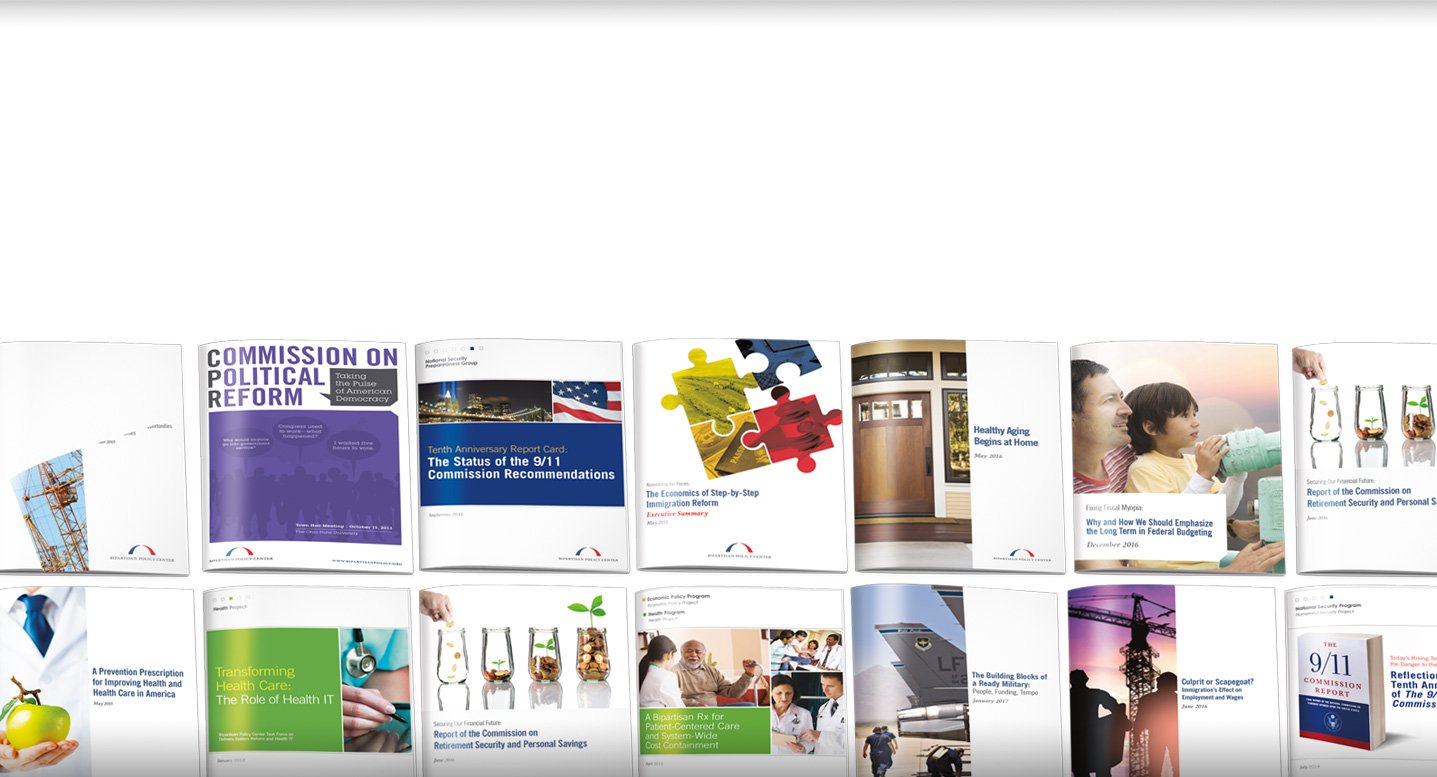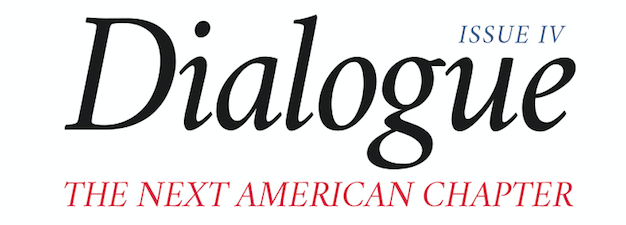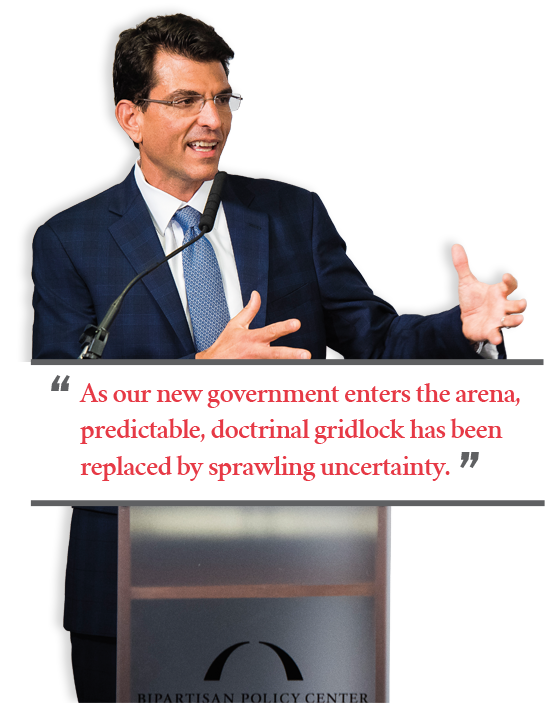For the last several years, our government has been stuck. Recurring arguments about the Affordable Care Act, immigration policy, executive power, and national security have worn deep grooves into our political conversations. These largely tribal and tedious debates offer little opportunity to reconcile, let alone engage about real differences. Happily, there were some exceptions to this squandering of democracy. In the last Congress, the Bipartisan Policy Center is proud to have contributed to legislation that improved the development of life-saving medical treatments, removed arbitrary barriers to exporting oil, modernized the law regulating toxic chemicals, strengthened Medicare, and extended the Children’s Health Insurance Program.
But, on the whole, our government failed too often and achieved too little. As our new government enters the arena, predictable, doctrinal gridlock has been replaced by sprawling uncertainty. President Trump is unencumbered by political debts, rigid ideology or detailed policy positions.










